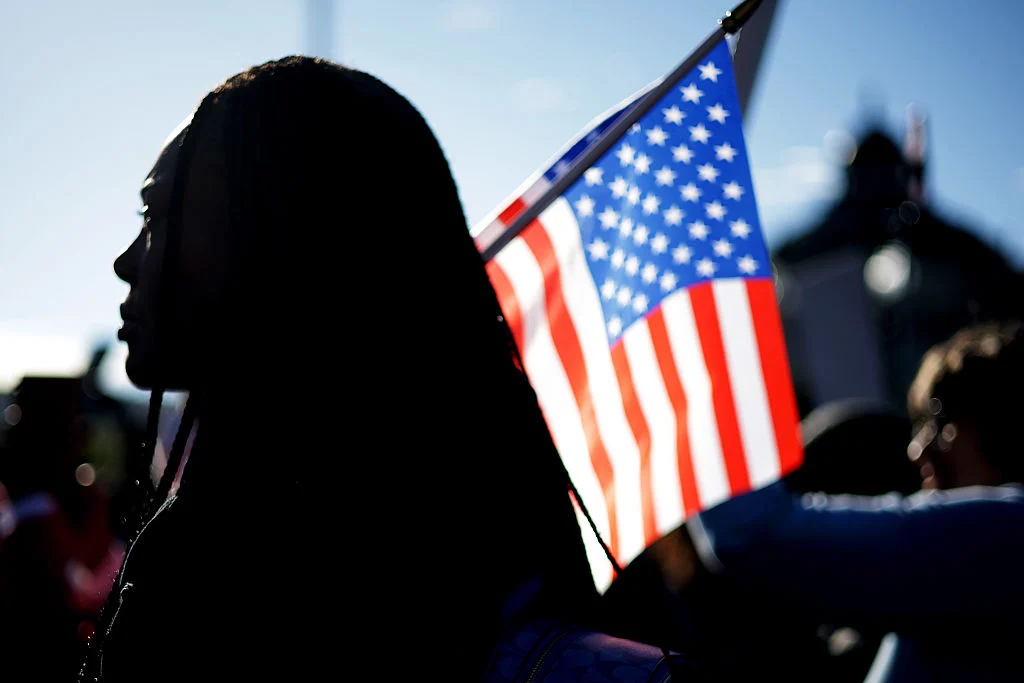The Implications of the Upcoming Elections: A Deep Dive
On Tuesday, November 4, Americans will step into polling stations to cast their votes in what is expected to be a pivotal election in the wake of Donald Trump’s unexpected 2024 presidential victory. The ramifications of this election extend far beyond just ballots, as voters will be expressing their opinions on Trump’s policies and the direction of the country.
A Referendum on Trump’s Presidency
This election acts as a referendum on Trump’s current administration and its policies, particularly for marginalized communities. Black Americans, who collectively rejected Trump in the 2024 election—83% voted against him—are particularly engaged, as they face the brunt of recent governmental decisions, including immigration raids and economic struggles.
The repercussions of Trump’s ascendance have been felt across various sectors. His administration’s approach toward immigration has ignited mass protests and confrontations, with federal law enforcement often at the forefront, challenging community relations. Moreover, economic policies like the global tariffs imposed by Trump have compounded financial strains, impacting everyone, particularly low-income households.
The “One, Big, Beautiful Bill Act”
One of the most controversial pieces of legislation passed under Trump’s administration is the “One, Big, Beautiful Bill Act.” This act introduces a staggering $3.8 trillion in tax cuts, primarily benefiting America’s wealthiest and most powerful corporations. Critics argue that such fiscal policies disproportionately harm the working class, with experts warning that cuts to essential health care programs—Medicaid and Medicare—could affect millions of Americans.
As such, the upcoming elections are viewed as a litmus test for Trump’s economic policies and their implications for the American people, especially for communities of color who might suffer most from these cuts.
The Government Shutdown and Its Profound Effects
Currently, the nation is experiencing a government shutdown that has left over a million federal employees, including National Guard members, without pay. The shutdown has severe implications for public services and programs aimed at aiding vulnerable populations. For many Black Americans, the suspension of services like SNAP (Supplemental Nutrition Assistance Program) represents a critical point of concern, as they already face higher unreported unemployment rates due to Trump’s policies.
Spotlight on Key Races
As attention turns to specific elections, several key races stand out, each with the potential to shift the political landscape dramatically:
New York Mayoral Race
The mayoral race in New York City is particularly captivating. Democratic nominee Zohran Mamdani stands on the brink of history, potentially becoming the first Muslim mayor and the youngest mayor since 1892. However, his status as a Democratic socialist has led to division among Democratic factions, and his opponents have branded him as too radical. If he succeeds, Mamdani could spearhead the resistance against Trump’s increasing influence in New York City.
Trump has aggressively challenged Mamdani, labeling him as a “communist” and threatening to cut federal funding to the city if he wins. As the stakes rise, the outcome of this race will significantly impact New York City’s more than 1.8 million Black residents.
Virginia Gubernatorial Race
In Virginia, voters are faced with a crucial gubernatorial race between Democratic nominee Abigail Spanberger and Republican nominee Winsome Earle-Sears. Earle-Sears stands as a prominent figure, potentially becoming the first African American woman governor in U.S. history. Yet, her alignment with Trump’s policies raises eyebrows as Spanberger criticizes her lack of courage to stand against Trump’s agenda.
Former President Barack Obama’s recent campaigning for Spanberger underscores the dichotomy at play: a fight between two fundamentally different visions for Virginia’s future. The implications of this race go beyond state boundaries, holding national significance as it reflects voters’ sentiments towards Trump’s MAGA politics.
Virginia Attorney General Race
The race for Virginia’s attorney general features Democratic nominee Jay Jones, who aims to stop what he labels as the abuses of power by Trump’s administration. If elected, Jones would become the state’s first African American attorney general, focusing on criminal justice reform and job creation.
Simultaneously, Republican candidate Jason Miyares‘s platform echoes Trump’s priorities. This contest serves as another indicator of Virginia voters’ sentiment towards the current political landscape; a Jones victory could signify a shift in addressing systemic issues impacting communities of color.
New Jersey Gubernatorial Race
New Jersey’s gubernatorial race between Democratic Rep. Mikie Sherrill and Republican Jack Ciattarelli represents yet another battleground. This race has broader implications, as the state grapples with the consequences of Trump’s stringent law enforcement policies. Undoubtedly, the outcome here will be a bellwether for how voters perceive Trump’s influence in their daily lives.
California’s Prop 50
In California, voters will weigh in on Proposition 50, a critical measure that could allow for the mid-decade redrawing of congressional maps to counteract gerrymandering efforts. With Trump’s backing of partisan map-drawing practices threatening to undermine the Voting Rights Act, this proposition underscores the vital nature of Black political representation in the state. Advocates, including the NAACP, assert that the future of fair representation hinges on voter turnout and the passage of Prop 50.
The upcoming elections represent a crossroads for the nation. As Americans head to the polls, particularly those from marginalized backgrounds, their votes will not only reflect preferences for candidates but also serve as a powerful message on the state of democracy and representation in the United States.



